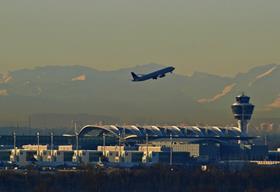
The International Air Transport Association (IATA) has released figures for June that show a 1.2 per cent year-on-year rise in global airfreight demand.
Although weak, IATA said it is an improvement against the 0.9 per cent year-on-year demand growth recorded in May and the 0.1 per cent growth realised over the first half of the year.
While previously the global economic trend has been defined by robust emerging economies and stagnant growth in developed markets, the strongest improvements in business confidence are now occurring in some developed economies, according to IATA.
Nevertheless, IATA pointed out that overall business confidence, which is a key indicator for air freight, continues to be weak.
From May to June, global freight volumes increased by 0.8 per cent, according to the report.
A quarter of that improvement was captured by European airlines which saw a 0.9 per cent improvement in demand compared to May, and 2.6 per cent up compared to June 2012.
In contrast, Asia-Pacific carriers (the biggest players in global airfreight) and North American airlines recorded year-on-year declines of 1.8 per cent and 1.2 per cent respectively.
“It’s too early to tell if June was a positive turning point after 18 months of stagnation,” said Tony Tyler, IATA’s Director General and CEO.
“Air freight volumes are at their highest since mid-2011, but that good news needs to be tempered with a dose of reality.
“The global economic environment remains weak, and the basis for the acceleration of air cargo growth in June appears to be fragile.”
Earlier this month IATA released the July edition of its Airline Business Confidence Index which showed nearly 58 per cent of respondents expecting freight volumes to increase over the next year.
Despite this, a much greater percentage of respondents (72.2 per cent) expect no change in weak cargo yields despite their expected increase in demand over the same period.
The macro-economic trend remains challenging. Recent declines in global export orders do not bode well for trade growth.






No comments yet